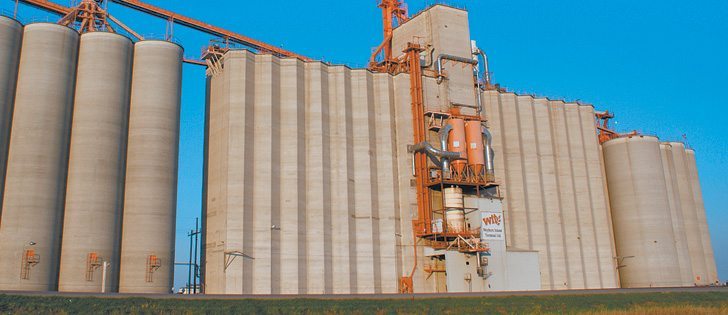2011 annual report | Farmer-directed company records first loss since 1985
Reduced seeded acres and flooding have caused Weyburn Inland Terminal’s first loss since 1985, says the company’s chief executive officer.
In its 2011 annual report, WIT, a farmer-directed grain company located on Canadian Pacific Railway’s Soo Line near Weyburn, Sask., reports an after-tax consolidated loss of $246,000.
That’s down from an after-tax profit of $4.9 million in 2010 and its average profitability of $3.9 million over the past five years.
“We’re in the same boat as farmers down here,” said Rob Davies. “With no crop in the ground, there wasn’t a lot of opportunity for us to do a lot last year.”
Read Also

Russian wheat exports start to pick up the pace
Russia has had a slow start for its 2025-26 wheat export program, but the pace is starting to pick up and that is a bearish factor for prices.
Flooding in the region kept farmers out of the fields in the spring.
Only 20 to 30 percent of the normal acres were eventually seeded, the company reported.
Sales of crop inputs totalled $17.5 million for the year, down from the five-year average of $22.9 million.
“Obviously, our crop input business, we didn’t get nearly the fertilizer or the crop protection products out or the seed out,” said Davies.
“It sort of got us almost every way it could get us.”
Carryover inventory, primarily durum, and a “solid” oilseed marketing program, allowed WIT to maintain 70 percent of its grain shipping program from the previous year.
The company saw grain receipts of 337,442 tonnes in 2011.
“We went a little bit farther out. We pursued some grain in some different market areas. Certainly there’s some inventory, although we really had a small crop last year and the year before,” said Davies.
“It was a bit of a struggle to find it…. What guys did get seeded was canola, so our focus there has helped.”
The company paid more than $1 million to customers in freight and dockage premiums on grain deliveries last year and dividends of $1.35 million to shareholders.
WIT’s ownership interest in Vancouver’s Alliance Grain Terminal is a key holding for the company now that the CWB’s single desk is about to be eliminated.
Fifty-nine percent of grain handled by WIT last year was CWB grain.
“In 2012, what percentage of the grain handled will be handled on behalf of the CWB is unknown, as are the specifics of the financial arrangement that will be made between WIT and the CWB,” said the report.
“There are a lot of unknowns today.… Certainly one of the issues is just going to be an effective price discovery mechanism for farmers based on western Canadian wheat and durum prices.”
The report also showed reduced profitability for its NorAmera BioEnergy ethanol production plant in Weyburn, despite improved revenues.
The facility experienced capital expenditures, higher costs and efficiency challenges that were also related to flooding.
“It’s getting much more stable and we’d like to break even this year or better,” said Davies.
“But if we can get close to that line and then just continue to work through it as we go forward … over the medium term, we’re certainly hoping it’s a solid contributor.”
The company relocated its lentil and canaryseed processor, Vigro Seed & Supply, last year following the purchase of Sedley Seeds.
WIT intends to sell the land and buildings at the former Vigro site, with the sale to be completed by the end of 2012, said the report.















